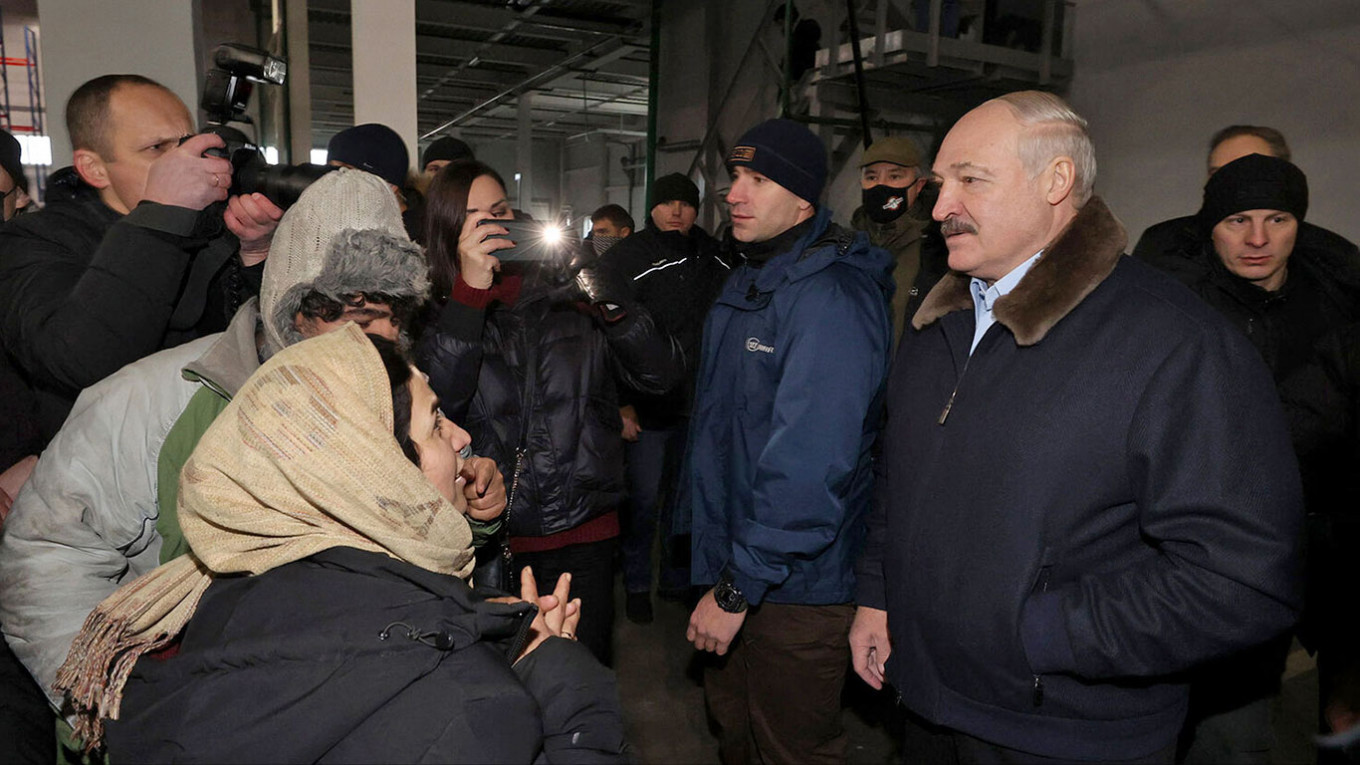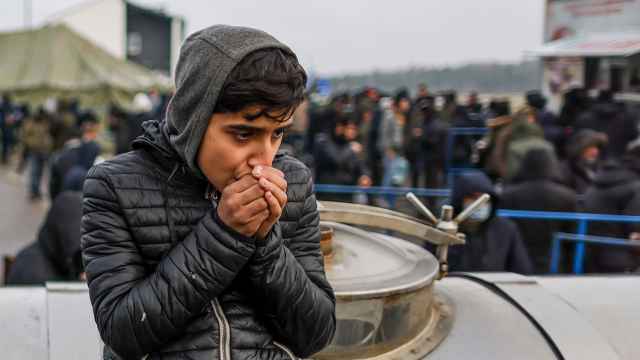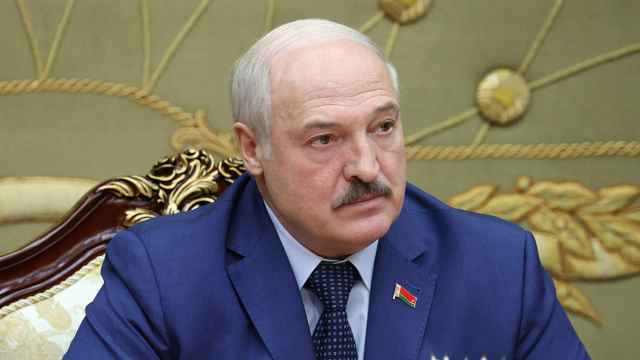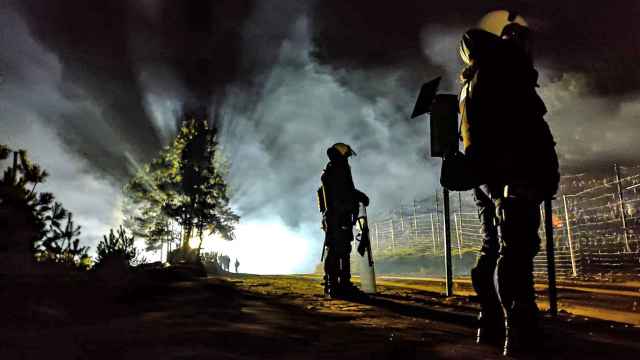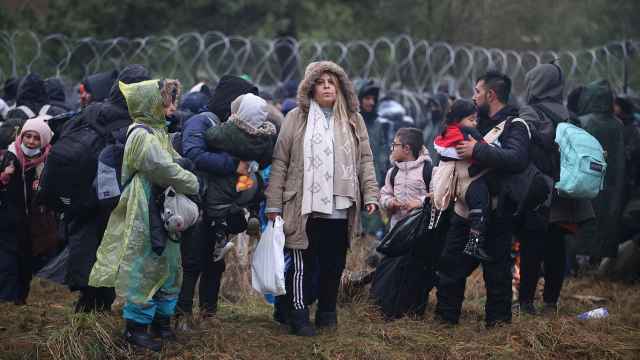Belarus's strongman leader Alexander Lukashenko told migrants on the border with Poland Friday that he would not try to stop them from reaching the European Union, urging Germany to take them in.
In footage released by state media, Lukashenko was shown visiting a center near the Polish border hosting hundreds of migrants — mainly Kurds from Iraq — who traveled to Belarus in the hopes of reaching Europe.
Western governments accuse Lukashenko of luring the migrants to his country to spark a border crisis with the EU in revenge for sanctions, which he denies.
Lukashenko was shown walking among and talking to the migrants in the center, then addressing them outside from a podium in a campaign-style speech.
Dressed in winter coats as they stood in the cold, the migrants appeared confused, though there were scatterings of applause.
Lukashenko, who has accused the EU of failing to meet humanitarian standards by refusing the migrants entry, told them his government would do nothing to prevent them from reaching Europe.
"If anybody wants to go West— that is your right. We will not try to catch you, beat you, and hold you behind barbed wire," Lukashenko said.
"We will work with you to achieve your dream."
With many of the migrants hoping to reach Germany, Lukashenko said he was asking the German people to welcome them.
"Please take these people in. This number is not very big. They want to live in Germany — 2,000 people is not a big problem for Germany," he said.
In recent months thousands of migrants from the Middle East have travelled to Belarus in the hopes of getting across the border into EU member Poland.
Repatriation flights continue
The crisis escalated earlier this month when several hundred tried to rush the border but were pushed back by Polish security forces.
Some 2,000, including many women and children, set up a makeshift camp on the border in freezing conditions.
The camp was cleared last week by border guards and the migrants moved to a nearby logistics center.
Lukashenko said that around 150 people were still "wandering" around the border and that there were up to another 3,000 migrants in the country outside the logistics centre.
"If we don't solve the migrant problem now, it will get a lot worse," he said.
On Wednesday, Poland said that more than 200 migrants had forced their way through the border with the help of Belarusian border guards but were immediately sent back.
Aid groups say at least 11 migrants have died on both sides of the border since the crisis began.
Many of the migrants say they have abandoned everything in their countries, spending thousands of dollars to fly into Belarus on tourist visas, and are determined to reach the EU.
But with Poland refusing entry, hundreds of Iraqis have chosen to return home on repatriation flights.
Two more flights to Erbil, the capital of Iraqi Kurdistan, were expected later on Friday and Saturday, according to Minsk airport.
The EU has imposed new sanctions on Lukashenko's regime over the migrant crisis, in addition to those applied last year after a post-election crackdown on the opposition that saw thousands of people arrested.
A Message from The Moscow Times:
Dear readers,
We are facing unprecedented challenges. Russia's Prosecutor General's Office has designated The Moscow Times as an "undesirable" organization, criminalizing our work and putting our staff at risk of prosecution. This follows our earlier unjust labeling as a "foreign agent."
These actions are direct attempts to silence independent journalism in Russia. The authorities claim our work "discredits the decisions of the Russian leadership." We see things differently: we strive to provide accurate, unbiased reporting on Russia.
We, the journalists of The Moscow Times, refuse to be silenced. But to continue our work, we need your help.
Your support, no matter how small, makes a world of difference. If you can, please support us monthly starting from just $2. It's quick to set up, and every contribution makes a significant impact.
By supporting The Moscow Times, you're defending open, independent journalism in the face of repression. Thank you for standing with us.
Remind me later.


